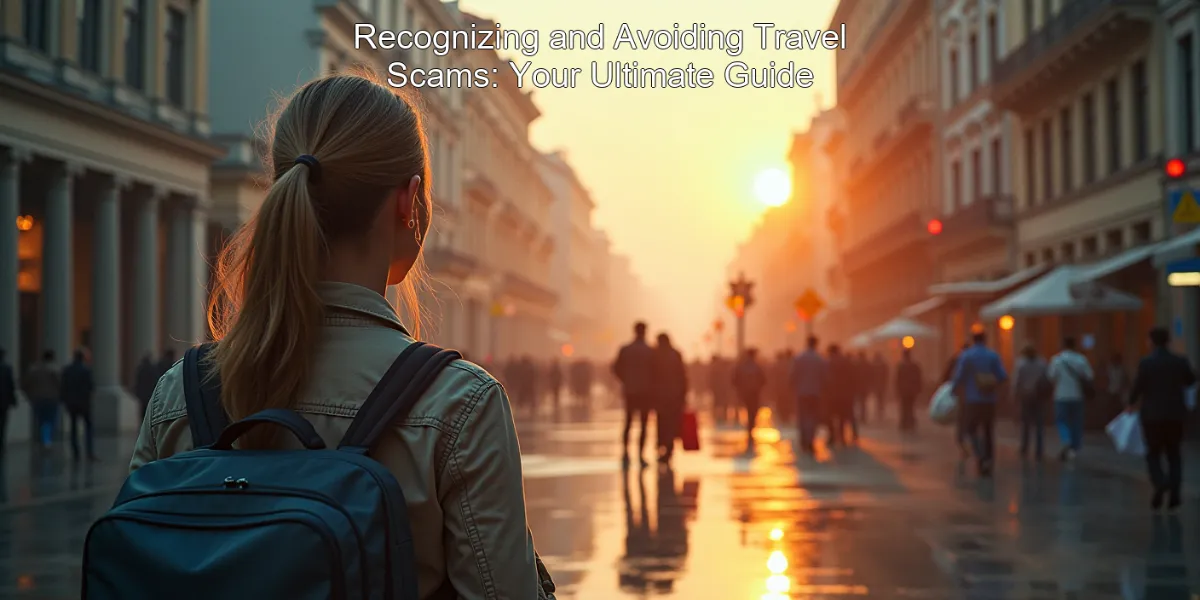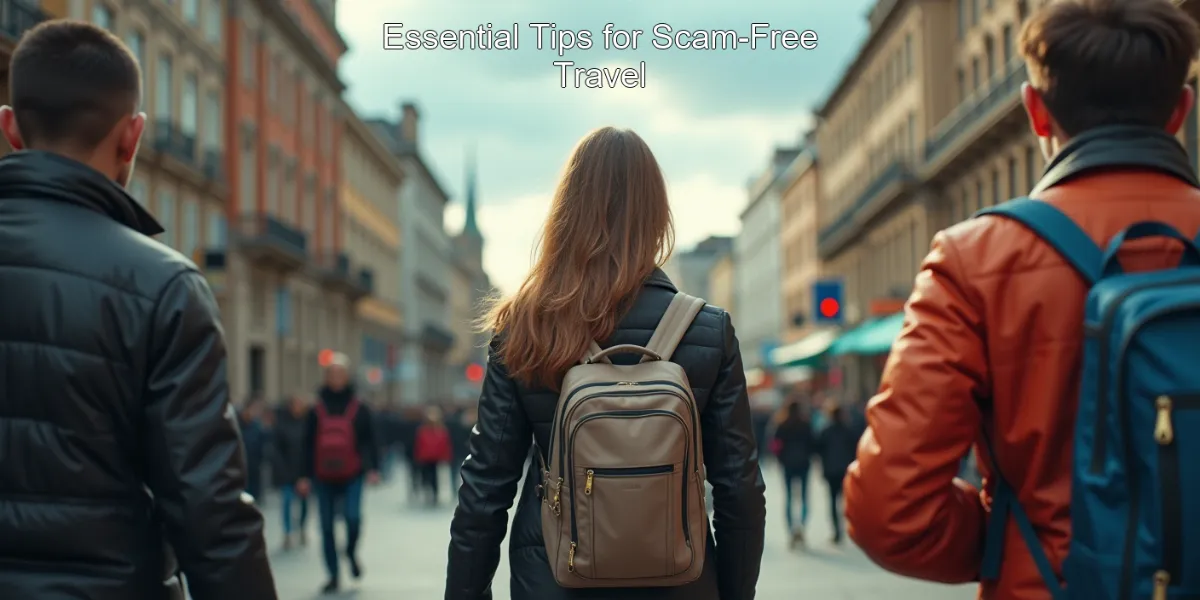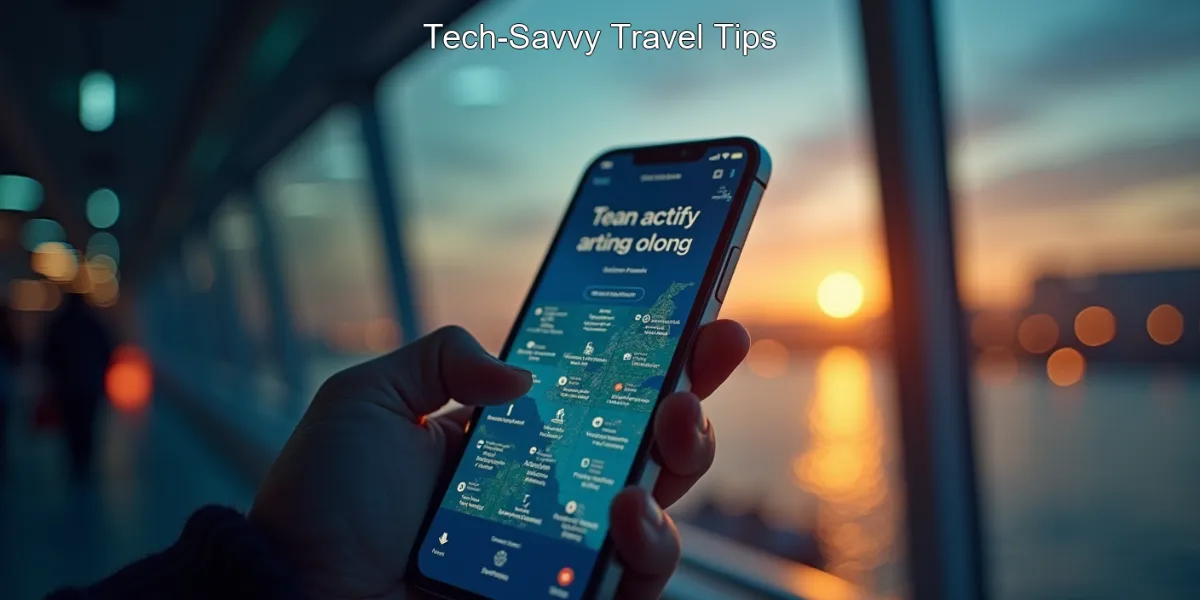Recognizing and Avoiding Travel Scams: Your Ultimate Guide

Traveling the world is an exhilarating experience, but it’s essential to stay vigilant against scams that can turn your dream vacation into a nightmare. Let’s dive into the world of travel scams and arm you with the knowledge to protect yourself and your hard-earned money.

#TravelScams, #TravelSafety, #TravelTips
Common Travel Scams: Know Your Enemy
| Scam Type | Description | Prevention |
|---|---|---|
| Fake Taxi | Unlicensed drivers overcharging tourists | Use official taxi stands or ride-hailing apps |
| Pickpocketing | Thieves stealing valuables in crowded areas | Use anti-theft bags and stay alert |
| Fake Wi-Fi Hotspots | Hackers stealing data through fake networks | Use VPN and avoid public Wi-Fi for sensitive tasks |
Being aware of these common scams is your first line of defense. Let’s explore more ways to stay safe:
- Research your destination thoroughly before traveling
- Keep valuables in a secure location, preferably a hotel safe
- Be wary of overly friendly strangers offering unsolicited help
- Always verify the credentials of tour operators and accommodations
“The best way to avoid being scammed is to trust your instincts. If something seems too good to be true, it probably is.” – Rick Steves, Travel Expert
According to a study by the American Hotel & Lodging Association, travel scams cost consumers nearly $4 billion annually. Don’t become part of this statistic!
Frequently Asked Questions About Travel Scams
Q: How can I spot a fake taxi?
A: Look for official taxi markings, meters, and licenses. When in doubt, use ride-hailing apps or ask your hotel to call a reputable taxi service.
Q: Are credit cards safer than cash when traveling?
A: Generally, yes. Credit cards offer fraud protection and are easier to cancel if stolen. However, always inform your bank about your travel plans.
Q: What should I do if I fall victim to a travel scam?
A: Report the incident to local authorities immediately and contact your embassy if abroad. Document everything and notify your bank or credit card company if financial information was compromised.
5 Essential Tips to Avoid Travel Scams
- Always book through reputable websites or travel agencies
- Be cautious of unsolicited offers or deals that seem too good to be true
- Keep your personal and financial information secure
- Use ATMs inside banks and avoid currency exchange on the street
- Trust your instincts – if something feels off, walk away
Remember, staying informed is your best defense against scams. For more in-depth advice on staying safe while traveling, check out our Travel Tips & Hacks section.
The Impact of Travel Scams: By the Numbers
Travel scams aren’t just annoying; they can have a significant financial impact:
- 78% of travelers worry about scams when planning a trip
- Over 30% of travelers report having been scammed at least once
- The average loss from a travel scam is $1,300 per incident
Don’t let these statistics scare you away from exploring the world. Instead, use them as motivation to stay vigilant and prepared. For those seeking worry-free travel experiences, consider our curated Luxury Retreats that prioritize safety and authenticity.
While being aware of scams is crucial, don’t let it overshadow the joy of travel. Embrace new cultures through Cultural Immersion experiences, and seek thrilling yet safe Adventure Escapes. With the right knowledge and precautions, you can explore the world confidently and create unforgettable memories.
Recognizing and Avoiding Common Travel Scams
Traveling the world opens up incredible opportunities for adventure and cultural immersion. However, it’s crucial to stay vigilant against common travel scams that can turn your dream vacation into a nightmare. Let’s explore how to recognize and outsmart these sneaky schemes, ensuring your journey remains safe and enjoyable.
| Scam Type | Common Locations | Prevention Tips |
|---|---|---|
| Fake Taxi Scams | Airports, Tourist Hotspots | Use official taxi stands, pre-book rides |
| Pickpocketing | Crowded Areas, Public Transport | Use anti-theft bags, stay alert |
| Overcharging | Markets, Restaurants | Research prices, negotiate politely |
Being aware of these common scams is your first line of defense. Let’s dive deeper into how you can protect yourself:
- Research your destination thoroughly before traveling
- Keep valuables secure and out of sight
- Trust your instincts – if something feels off, it probably is
- Be wary of overly friendly strangers offering unsolicited help
- Use official tourism information centers for advice and bookings
“The world is a book and those who do not travel read only one page. But those who travel wisely read the whole book safely.” – Adapted from Saint Augustine
According to a study by the Global Business Travel Association, 46% of travelers have encountered some form of travel scam, highlighting the importance of staying informed and cautious.
Frequently Asked Questions
Q: How can I spot a fake taxi?
A: Look for official taxi licenses, meters, and company branding. When in doubt, use ride-hailing apps or pre-book through your hotel.
Q: Are credit cards safer to use than cash while traveling?
A: Generally, yes. Credit cards offer fraud protection and are easier to cancel if stolen. However, always inform your bank of your travel plans.
Q: What should I do if I fall victim to a travel scam?
A: Report the incident to local authorities immediately and contact your embassy if abroad. Document everything and notify your bank or credit card company if financial information was compromised.
Essential Tips for Scam-Free Travel

- Use ATMs inside banks for cash withdrawals
- Avoid flashing expensive items or large amounts of cash
- Learn basic phrases in the local language to appear more confident
- Double-check all bills and receipts before paying
- Keep digital copies of important documents separate from originals
Statistics show that awareness is key: countries with strong tourist education programs report up to 30% fewer incidents of travel-related fraud.
Remember, while it’s important to be cautious, don’t let fear overshadow your adventures. By staying informed and following these tips, you’ll be well-equipped to enjoy your Adventure Escapes without falling prey to common scams.
For those seeking a worry-free getaway, consider exploring Luxury Retreats that often come with added security measures and vetted services.
Immersing yourself in Cultural Immersion experiences can also help you blend in and appear less like a tourist target. The more you understand local customs, the better equipped you’ll be to spot unusual behavior.
For more comprehensive guidance on staying safe while traveling, check out our extensive collection of Travel Tips & Hacks. Armed with knowledge and a bit of street smarts, you’ll be ready to explore the world with confidence and peace of mind.
Staying Safe and Savvy: How to Avoid Common Travel Scams
Traveling the world is an exhilarating experience, but it’s essential to stay vigilant against common travel scams. By arming yourself with knowledge and following smart practices, you can ensure your adventures remain memorable for all the right reasons. Let’s dive into the world of travel scams and learn how to outsmart the tricksters!
Understanding Travel Scams: Types and Tactics
| Scam Type | Common Tactics | Prevention Tips |
|---|---|---|
| Taxi Overcharging | Rigged meters, long routes | Use official taxis, agree on fare beforehand |
| Pickpocketing | Distraction techniques, crowded areas | Use anti-theft bags, stay alert in crowds |
| Fake Officials | Impersonating police, demanding bribes | Ask for official ID, contact embassy if unsure |
Be aware of these common scams to protect yourself:
- The “friendly” local offering unsolicited help
- Currency exchange tricks with sleight of hand
- Fake petitions or charity collectors
- Overpriced souvenirs or counterfeit goods
“The world is a book and those who do not travel read only one page. But those who travel wisely read the whole book safely.” – Adapted from Saint Augustine
According to a study by the Global Business Travel Association, 46% of travelers have encountered some form of travel scam, highlighting the importance of staying informed and cautious.
Q: How can I spot a fake taxi?
A: Look for official markings, a meter, and a driver’s ID. When in doubt, use ride-hailing apps or hotel-recommended services.
Q: What should I do if I suspect I’m being scammed?
A: Trust your instincts. Walk away calmly, seek help from official sources, and report the incident to local authorities.
Q: Are credit cards safer than cash for travel?
A: Generally, yes. Credit cards offer fraud protection and are easier to cancel if stolen. However, always inform your bank of your travel plans.
Smart Traveler’s Checklist: Avoiding Scams
- Research common scams in your destination
- Keep valuables secure and out of sight
- Use official services and reputable tour operators
- Be wary of “too good to be true” offers
- Trust your instincts and don’t be afraid to say no
Remember, scammers often target tourists who appear distracted or overwhelmed. Stay alert and confident to deter potential scammers.
Technology: Your Ally Against Scams
In today’s digital age, technology can be a powerful tool in avoiding travel scams. From secure payment apps to real-time translation services, your smartphone can be your best defense against fraudsters.
| Tech Tool | Function | How It Helps |
|---|---|---|
| VPN | Secure internet connection | Protects personal data on public Wi-Fi |
| Currency converter apps | Real-time exchange rates | Avoids currency exchange scams |
| Travel safety apps | Emergency alerts, local info | Provides up-to-date safety information |
Embrace these digital tools to enhance your travel safety:
- Use secure payment methods like Apple Pay or Google Wallet
- Download offline maps to navigate without relying on strangers
- Utilize translation apps to understand local signage and conversations
- Research reviews and ratings for accommodations and activities
“In the digital age, a smart traveler’s best companion is often their smartphone, loaded with the right apps and knowledge.” – Travel Tech Expert
A survey by Travelex found that 70% of travelers feel more confident using digital payment methods abroad, reducing the risk of cash-related scams.
Frequently Asked Questions About Tech and Travel Safety
Q: Is it safe to use public Wi-Fi while traveling?
A: It’s best to avoid public Wi-Fi for sensitive transactions. Use a VPN or your mobile data for added security.
Q: How can I protect my digital information while traveling?
A: Use strong, unique passwords, enable two-factor authentication, and avoid accessing sensitive accounts on public networks.
Q: Are digital wallets safer than carrying cash or cards?
A: Digital wallets can be safer as they often require biometric authentication and don’t expose your actual card numbers.
Tech-Savvy Travel Tips

- Update all your apps before traveling
- Use a password manager for secure logins
- Enable find my device features on all your gadgets
- Back up important documents to a secure cloud service
- Learn to use your phone’s emergency features
By leveraging technology wisely, you can significantly reduce your risk of falling victim to travel scams and enjoy a safer, more relaxed journey.
For more insights on making the most of your travels, check out our Travel Tips & Hacks section. If you’re looking for safe and authentic experiences, explore our Cultural Immersion guides. For those seeking excitement without compromising safety, our Adventure Escapes offer thrilling yet secure options. And if you prefer worry-free luxury, our Luxury Retreats provide top-notch security along with unparalleled comfort.

Remember, the key to avoiding travel scams is a combination of preparation, awareness, and smart use of resources. Stay informed, trust your instincts, and don’t let the fear of scams deter you from exploring the beautiful world out there. Happy and safe travels!



